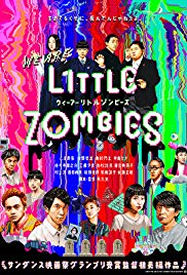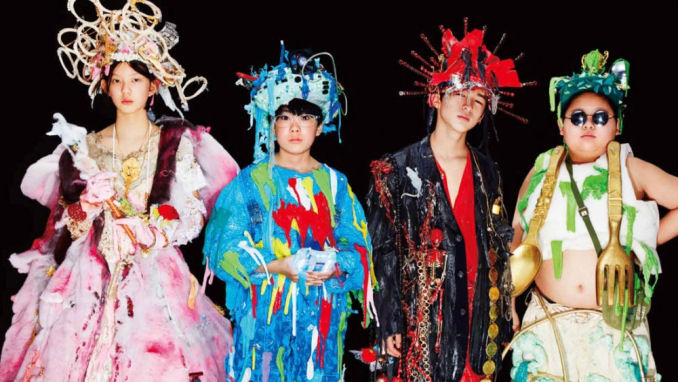Can something feel like a pure pop confection that could dissolve away like cotton candy in the rain while simultaneously being dour and nihilistic? That’s the tightrope that first time feature director Makoto Nagahisa walks in We Are Little Zombies and for a good majority of the film, he manages to stay on beam.
Hiakri has always been more interested in video games than even his own parents, and so it seems to barely register with him emotionally when they are killed in an accident. While outside the crematorium following their funeral services, he meets three other thirteen-year-olds who are also recently orphaned and also seemingly nonplussed about their new status. Rather than go to live with his overbearing aunt, Hiakri and the other three decide to runaway. Forming a band, they soon find themselves pop sensations, a situation that doesn’t change their ongoing apathy towards the world.
Like many first time directors, Nagahisa has a lot of things he wants to say and a lot of things he wants to do, and he shows no restraint in getting it all out and up on the screen. We Are Little Zombies is chockablock full of ideas and they all spill out across the film’s two-hour run time in a visually and thematically chaotic fashion. Among the things the he wants to comment on include society’s neglect of the homeless, the potential dangers of mob mentality on social media and the disposable way that pop stars and fashion trends are cycled through. There may be some specific cultural context that is missing for American audiences, but the targets are broad enough that the gist still translates effectively.
Interestingly, Nagahisa structures the film like the video game Hikari is almost constantly playing. The story is divided into a number of levels, each with its own title card and 8-but graphics. A majority of the film’s soundtrack as well as the basis for Little Zombies’s songs is old-school video game chiptune music. Even some camera shots taken form a bird’s eye view of the four recall maze-like video games like Pac-Man. But this is a story being told by Hiakri, and it appears that video games are the only type of storytelling that he is conversant in, so the conceit works.






